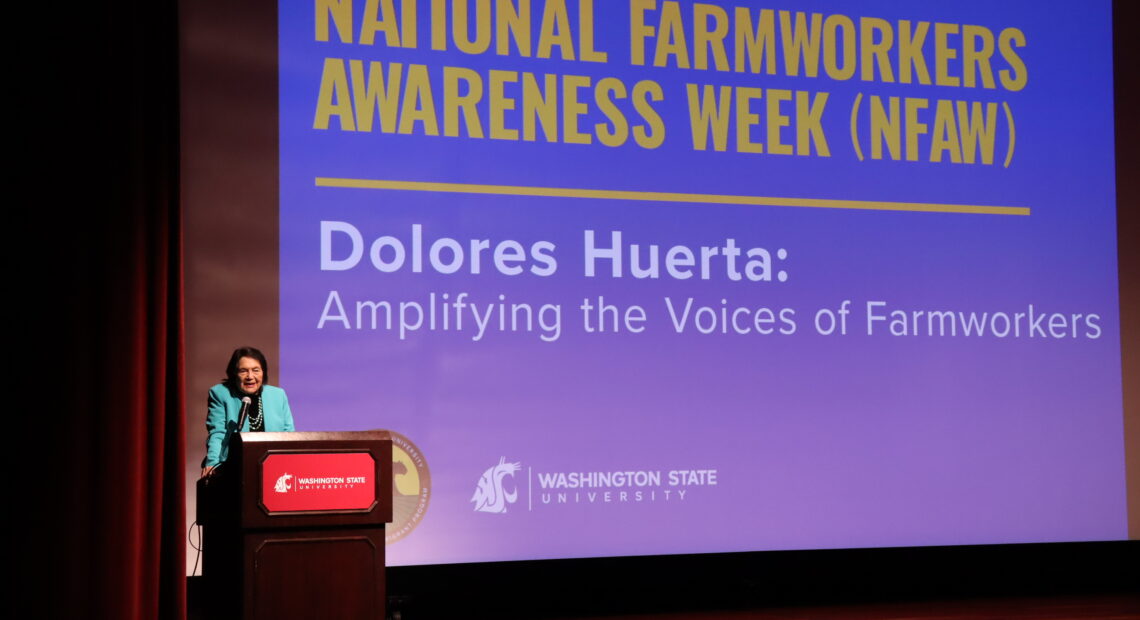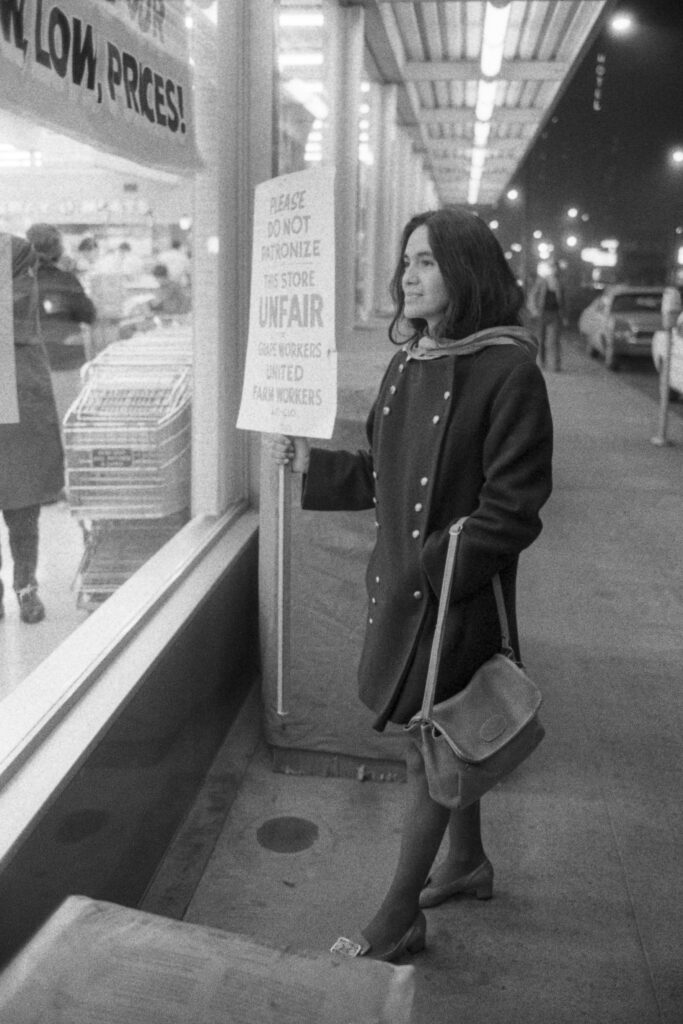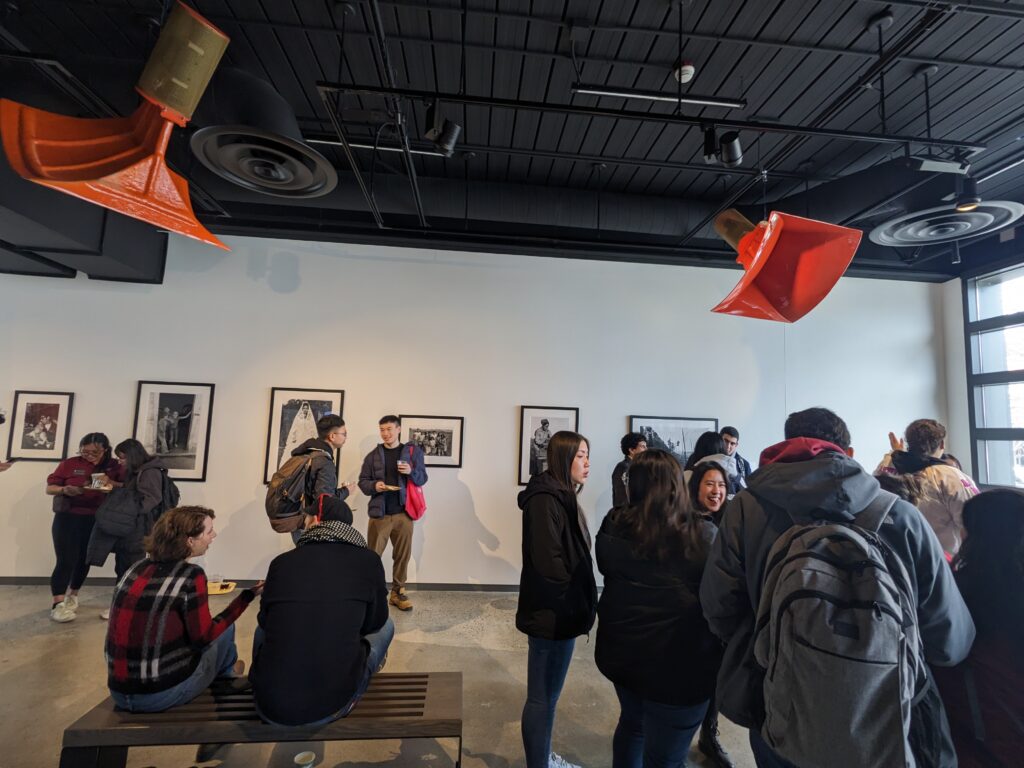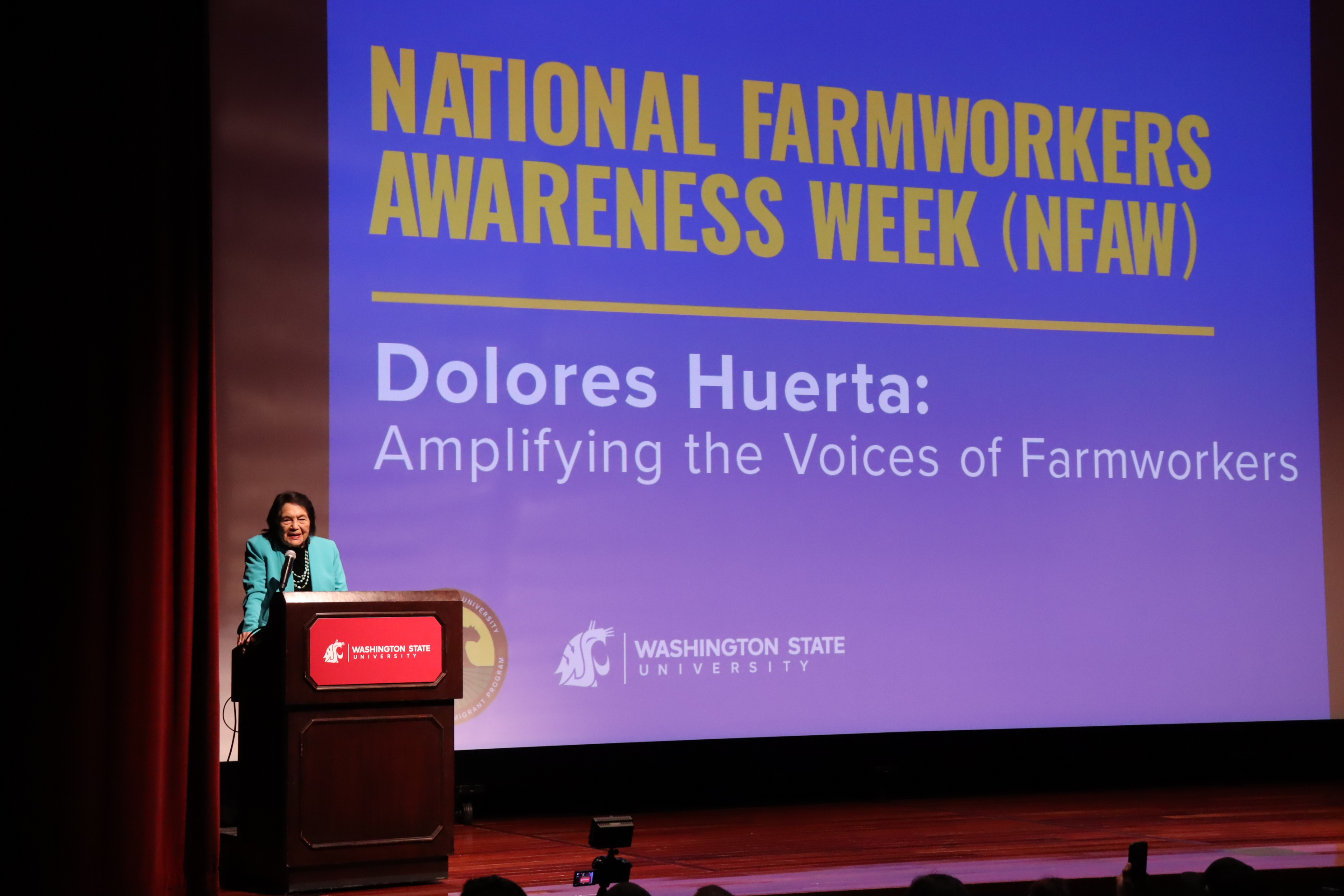
Civil rights activist Dolores Huerta speaks at WSU
Listen
(Runtime 1:07)
Read
Civil rights activist Dolores Huerta spoke at Washington State University’s Pullman campus on April 3 as the keynote speaker for Farmworker’s Awareness Week.
At 92, Huerta continues to advocate for the rights of farmworkers, women and people of color. “We need to do a lot more work,” she said in her speech at the CUB Auditorium.
Huerta is known for co-founding the United Farmworkers Union with Cesar Chavez in 1962 in Delano, California. In 1965, she helped lead a grape boycott across the country, encouraging people to stop eating grapes to support justice for farmworkers.
“We went on the boycott, and with farmworkers, went all over the United States of America, talking to audiences like you, asking them to boycott grapes,” she said.
“They went to New York. They went to Chicago. They went to Texas. They went to Canada. They went to Europe,” said Huerta. “At the end of the day 17 million Americans in the United States stopped eating grapes. OK? 17 million!”

Dolores Huerta protests in front of a Safeway store in Seattle, Washington in 1968. (Courtesy: WSU Libraries, MASC Irwin Nash Collection)
The boycott worked, giving more rights to farmworkers. After five years of strikes, agricultural workers signed their first union contracts, guaranteeing better pay, improved benefits and the right to form a union.
Huerta is known for her skills in teaching others how to protest effectively. She encouraged Monday’s crowd of mostly young Latino and Hispanic students to go out into their communities, get organized and vote.
Huerta has been arrested more than 20 times throughout her life, but she has since received many honors for her activism, including the Presidential Medal of Freedom in 2012. She was the first Latina inducted to the National Women’s Hall of Fame in 1993.
Voting is key to political power, Huerto said. Latinos and Hispanics account for just over 20% of eligible U.S. voters, according to the Pew Research Center. They are currently the fastest-growing ethnic group in the U.S. electorate.
In her speech, Huerta said she still sees the same problems today, when farmworkers and other low-income workers try to form unions, or advocate for more rights. “They don’t want the workers to have power,” she said.
Huerta said the suffering of many in Latino and Hispanic communities comes from the legacy of slavery.
“The whole idea that anybody has to work, all of their lives, give their life’s energy to make other people rich, really? That’s what slavery is about,” she said.

A reception in honor of Huerta was held at Pavilion Gallery of the Jordan Schnitzer Museum of Art at WSU. The exhibition featured photographs of migrant laborers in the Yakima Valley by Irwin Nash, organized in collaboration with WSU Libraries’ Manuscripts, Archives, and Special Collections and guest curated by Lipi Turner-Rahman. (Credit: Lauren Paterson / NWPB)
Amidst the current wave of protesting and unionization in the U.S., Huerta encouraged people to push for universal healthcare, free college education and free daycare.
She talked about how organizing starts around the kitchen table, little by little, family by family.
“We know that we have all of these things that we want to see. And we see all of the things that we want to improve and change. But you know what the secret is?” asked Huerta. “That nobody is going to do it for us. We are the only ones that can do it for ourselves.”
















